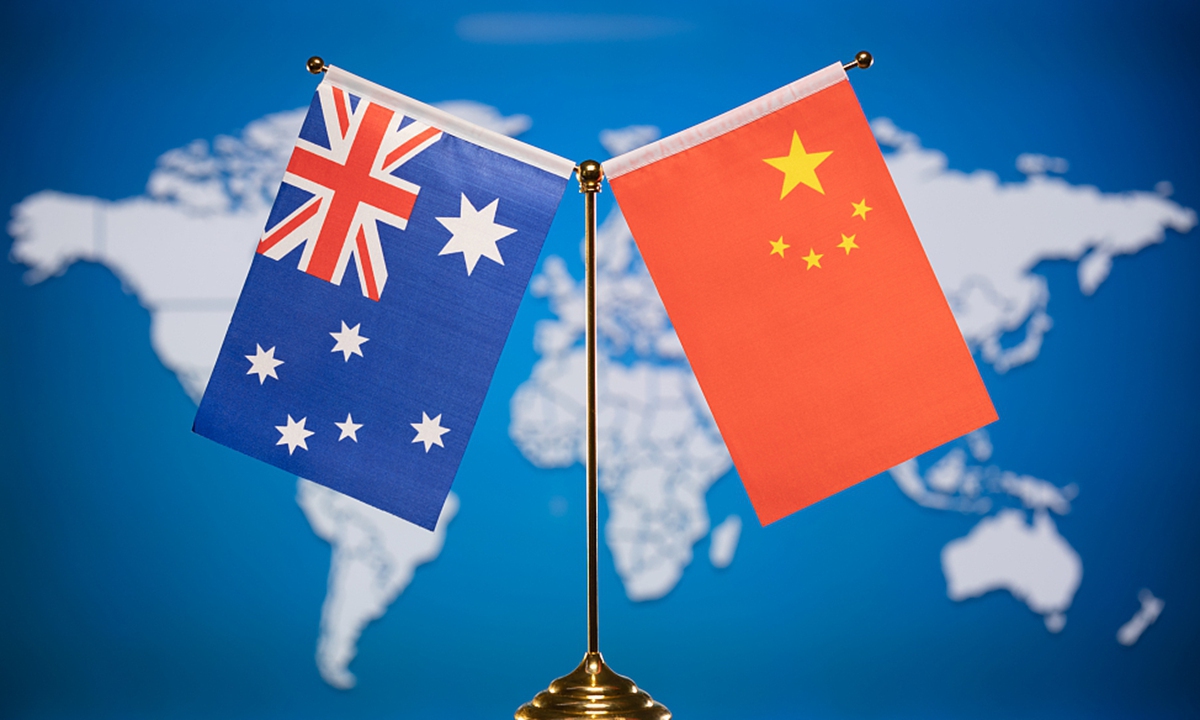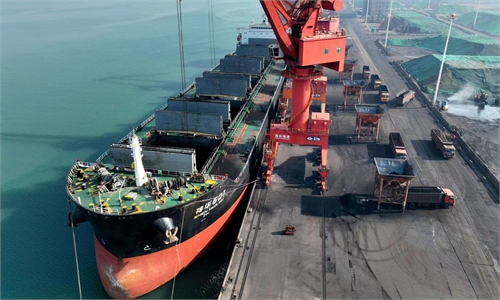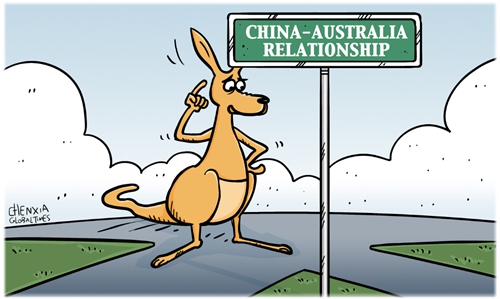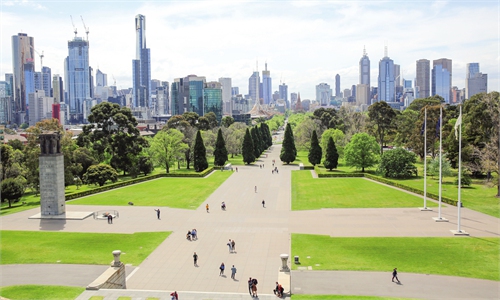Top trade officials of China, Australia to meet virtually next week: MOFCOM
Critical turning point paves way for improved relations

China Australia Photo: VCG
The Chinese Ministry of Commerce (MOFCOM) confirmed on Thursday that top trade officials from China and Australia will meet online next week, marking a significant turning point in bilateral trade ties, as more positive signs point to improving relations between Beijing and Canberra.Chinese Commerce Minister Wang Wentao and Australian Trade Minister Don Farrell will hold talks via videoconference, MOFCOM official Yang Tao told a press conference on Thursday, saying that the two will discuss the bilateral trade relationship and related issues.
Yang struck a positive note on future ties, saying that China is willing to work with Australia to "expand cooperation, manage and control differences, and promote the development of bilateral economic and trade cooperation based on the principles of mutual respect and mutual benefit."
Chinese observers said the meeting, the first one between senior trade officials in about three years, is a positive sign. The discussions could boost trade and tourism, and new areas such as green energy and electric vehicles could also benefit.
Some bilateral trade issues will be addressed, with both sides proactively seeking solutions, Chen Hong, director of the Australian Studies Center at East China Normal University, told the Global Times on Thursday.
"Things cannot be settled all at once as relevant departments and agencies of the two countries will need to take specific steps to resolve the issues," Chen said.
China is a prime market for many Australian goods including coal, iron ore and wine. However, many of these products lost ground in the Chinese market in recent years as domestic companies sought alternatives to reduce the risks of disruptions as relations soured.
In 2022, bilateral trade fell 3.9 percent year-on-year to $220.91 billion, data released by China's General Administration of Customs showed. Australian exports to China stood at $142.09 billion, down 13.1 percent.
Better bilateral relations will set a very positive tone for economic recovery in the post-pandemic era, especially for Australia, where inflation shot to a 33-year high in the fourth quarter of 2022 as the cost of travel and electricity jumped.
The Australian business community has been eagerly awaiting a boost in ties.
"We welcome any move that strengthens economic and cultural ties between the two nations, and we're hopeful of further dialogue and engagement," the Treasury Wine Estate's CEO Tim Ford told the Global Times in December after the two countries' foreign ministers met in Beijing.
Some Chinese firms have also "tested the waters" since the beginning of 2023, as industry insiders told the Global Times that the first shipment of about 72,000 tons of Australian coking coal is expected to arrive at Zhanjiang Port, South China's Guangdong Province on February 8.
Meanwhile, domestic coal industry insiders remain cautious, noting that the shipment from Australia is small, and it will take time for more Chinese companies to regain confidence in the Australian side.
When asked whether China will soon lift the "restrictions" on wider Australian exports such as cotton, rock lobster, wine and barley, Yang said that the main body of China-Australia trade is enterprises.
"Enterprises of the two countries make independent business decisions based on demand and market conditions, and some inspection and quarantine measures adopted by China strictly abide by Chinese laws and regulations and WTO rules," Yang said.
With China's optimized pandemic responses, bilateral trade will recover and even rebound, and this trend will become even stronger within three years, Chen said.
In addition to high expectations for rising trade flows in bulk commodities like iron ore and coal, other areas of bilateral cooperation such as green energy and digital transformation can be new fields to tap into, Chen said.
Both China and Australia are important countries in the Asia-Pacific region. A sound and steady development of bilateral relationship serves the fundamental interests of the two peoples and contributes to the prosperity of the Asia-Pacific region and the world, Mao Ning, spokesperson of the Chinese Foreign Ministry, told a press conference in Beijing on Thursday.



